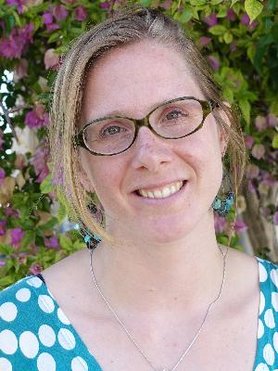

Dr. A.M.H. (Anne) Pluymakers
Dr. A.M.H. (Anne) Pluymakers
Profiel
My research is in experimental rock mechanics and associated 2D and 3D microstructural analysis, with a strong focus on thermo-hydro-mechano-chemical (THMC) fluid-rock interaction. How do mechanical and transport properties of rocks change by the presence and type of fluid at realistic in-situ conditions? Or in other words: how, when and why do rocks break, and what is the effect of the fluids nearby?
Academische achtergrond
Assistant Professor Experimental Fluid-Rock Interaction at CiTG TU Delft (current)
Postdoctoral Researcher Experimental Rock Mechanics at CiTG TU Delft (2018 - 2020)
Postdoctoral Researcher Fluid-Rock interactions at University of Oslo (2015 - 2017)
Publicaties
-
2024
4D Neutron Imaging of Solute Transport and Fluid Flow in Sandstone Before and After Mineral Precipitation
Paiman Shafabakhsh / Benoît Cordonnier / Anne Pluymakers / Tanguy Le Borgne / Joachim Mathiesen / Gaute Linga / Yi Hu / Anders Kaestner / François Renard
-
2024
Effects of thermal shocks on integrity of existing and newly-designed sealants for CCS applications
Kai Li / Anne M.H. Pluymakers
-
2024
Precursory Signals to Injection Induced Fault Reactivation in the Laboratory Using Active Ultrasonic Monitoring Methods
A. Veltmeijer / M. Naderloo / A. Pluymakers / A. Barnhoorn
-
2023
Effect of a singular planar heterogeneity on tensile failure
A.M.H. Pluymakers / R.R. Bakker / F.B. Ter Steege / B. Versluis / A. Barnhoorn
-
2023
Induced seismicity: a global phenomenon with special relevance to the Dutch subsurface
Anne Pluymakers / Annemarie G. Muntendam-Bos / André Niemeijer
-
Onderwijs 2023
- Field Exploration Project
- Field Exploration Project
- Group project: future of…
- Geo-resources 1.0: past and…
- Grand Challenges and Applied…
Onderwijs 2022
Media
-
2024-01-25
Anne Pluymakers in the media 2024
Verscheen in: NPO radio 1, De Nacht van...
-
2017-07-27
4 Veni toekenningen voor onderzoek aan de TU Delft
Verscheen in: TU Delft
Nevenwerkzaamheden
-
2024-01-01 - 2026-01-01
Onderwijs